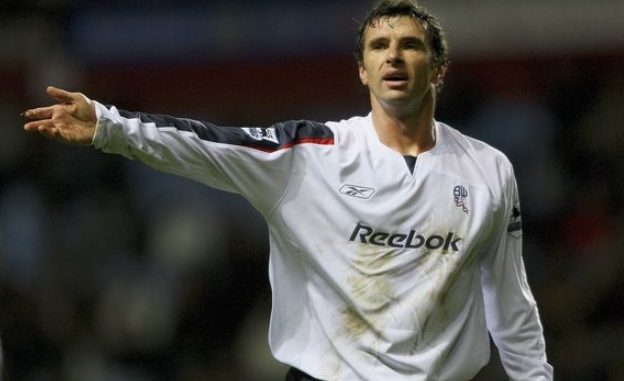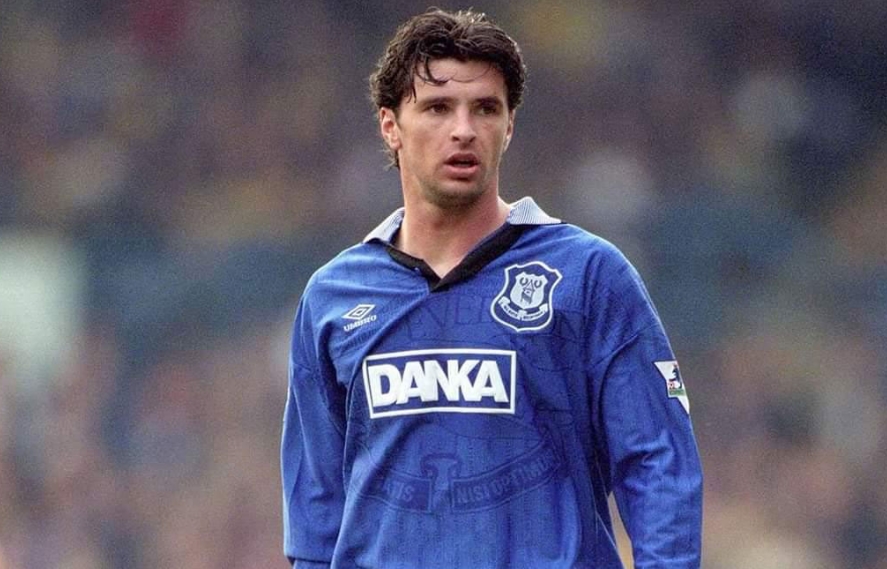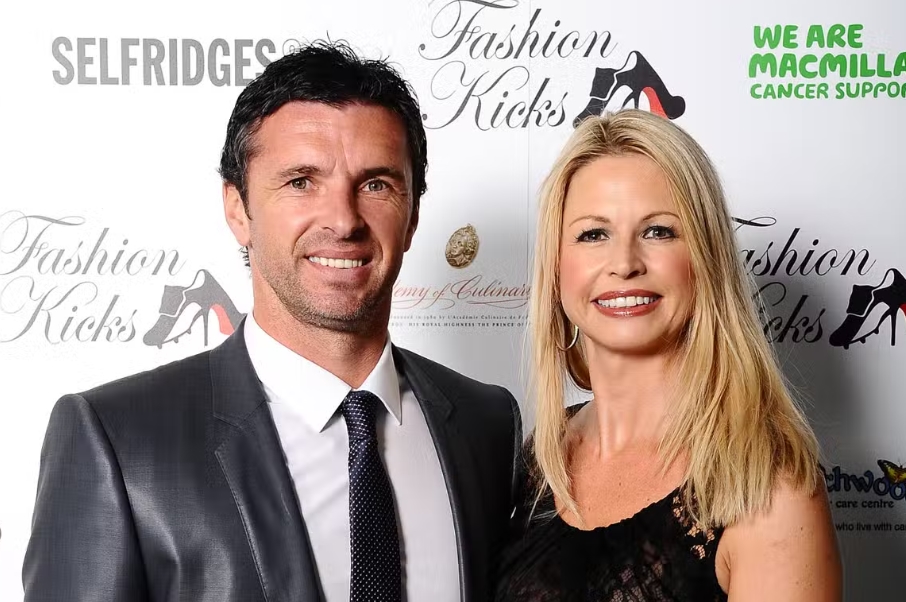
Gary Speed was a Welsh professional footballer and manager. As a midfielder, he played for teams including Leeds United, Everton, Newcastle United, Bolton Wanderers, and Sheffield United before his retirement. As a manager of Wales, he is often credited as being the catalyst for the change in the fortunes of the national team and as setting the pathway to future successes. He captained the Wales national football team until retiring from international football in 2004. He was the most capped outfield player for Wales and the second overall with 85 caps between 1990 and 2004 until being overtaken by Chris Gunter in 2018. He made his appearances in the Football League and cup competitions and made 840 domestic appearances. He was appointed a Member of the Order of the British Empire (MBE) in the 2010 Birthday Honours for services to football.
Gary Speed Cause Of Death
Gary Speed, after appearing on the BBC One TV program Football Focus, took a short walk from the studios across the Manchester Ship Canal. At 5 pm, he drove home to Huntington, Cheshire, about an hour’s drive from Old Trafford. The following morning, just before 7 am, his wife Louise found his body hanging in the garage of his home on 27th November 2011. He dies at 42. She hurriedly telephoned the ambulance service at 7:08 a.m. and the police were also informed. They confirmed that he was dead, and announced that they were not treating his death as suspicious. His death cause was reported to be suicide (self-suspension) as there is no foul play.
His death news was first announced by the Football Association of Wales who extended their sympathies and condolences to Speed’s family. Close friends and former teammates such as Robbie Savage, Ryan Giggs, Simon Grayson, Alan Shearer, Craig Bellamy, and John Hartson all expressed their deep sorrow at his death. His funeral was attended by around 250 members of his family and close friends and took place in the village of Hawarden on 9 December 2011. In keeping with his wife Louise’s wishes, only small crowds gathered on the main road outside St Deiniol’s Church, and no members of the press were admitted. Speed was later cremated in Pentre Bychan Crematorium, Wrexham.
In 2018, 7 years after his death, an old letter written by Speed in which he noted being depressed and wishing to sleep and “never wake up” was uncovered by his widow Louise. The letter was addressed to Louise and it was written when Speed was 17 years old.
What was Gary Speed Known For?
- Gary was a professional footballer and manager from Welsh.
- He was a versatile player who could play in left midfield, central midfield, and also at left-back, but playing mainly as a left-side attacking midfielder, with a knack for directing powerful headers toward the goal.
- He was well-known as a ‘consummate professional both on and off the field.
What was Gary Speed Nationality?
Gary Speed took birth on September 8, 1969, in Mancot, Flintshire, Wales. His birth name was Gary Andrew Speed. He held Welsh nationality and his ethnic background was Welsh-White. For the last time, he celebrated his 42nd birthday on September 8, 2011. He was born to his parents – Roger and Carol. He also had a sibling, a sister namely Lesley Haylock. For his education, he went to Hawarden High School. During his early life, he was employed as a paperboy and played for Flintshire Schoolboys and for Aston Park Rangers. He excelled at cricket and football as a youngster.

Gary Speed Football Career
Leeds United
- Gary Speed started his football journey with the club, Leeds United as a trainee. He signed his professional contract on June 13, 1988. He made his team debut against Oldham Athletic when he was 19.
- He next played a key role, playing 41 of a possible 42 games and scoring seven goals, as Leeds won the Football League First Division championship title in 1992. He played the key role in Leeds’ UEFA Champions League first-round tie against VfB Stuttgart in September 1992. he helped Leeds to a 4–1 victory at Elland Road.
- Next, he was selected for the PFA Team of the Year for the 1992–93 season. He scored the winning goal on October 4, 1995, against Notts County. He featured in the 1996 Football League Cup Final defeat by Aston Villa.
- For the club, Leeds United, he played in 312 games scoring 57 goals before he joined Everton.
Everton
- Gary Speed signed the club Everton for a fee of £3.5 million and made his team debut on 17 August 1996. He did not play his last game for the club against Chelsea on January 18, 1998. He was then sold to Newcastle United for £5.5 million.
Newcastle United
- On February 6, 1998, Gary Speed signed with the club for a fee of £5.5 million and made his debut match against West Ham United. He scored his first goal in his fifth match, the sixth round proper of the 1997–98 FA Cup.
- He finished his season with the club playing in the 1998 FA Cup Final. Next, he featured in the club’s FA Cup Final defeat to Manchester United on 22 May 1999.
- Gary scored a goal in Newcastle’s 8–0 Premier League victory over Sheffield Wednesday on September 19, 1999. He also played in the UEFA Champions League with Newcastle in the 2002–03 season in the group stage on 29 October 2002.
Bolton Wanderers
- Gary then shifted his team to Bolton Wanderers on a two-year deal for £750,000 in July 2004, becoming the first player to make 500 Premier League appearances when he played in Bolton’s 4–0 victory over West Ham United in December 2006.
- On May 1, 2007, Gary was named as the first-team coach for Bolton after Sam Allardyce stepped down from his job as manager. He left the coaching job in October and returned as a football player.
- On 25 August 2007, Gary scored a heading goal for Bolton against the club, Reading. Scoring the goal, he became the only player to have scored in every Premiership season to date which was next followed by Ryan Giggs.
- It was later confirmed on 24 December 2007 that he would join Sheffield United on loan on January 1, 2008, with a view to a permanent move for a fee of about £250,000.
Sheffield United
- For the club, Gary made his debut match against Wolverhampton Wanderers on New Year’s Day 2008. He played for the team regularly for the rest of the season.
- On May 10, 2008, in an interview with BBC Wales, Gary hinted that the 2008–09 season may be his last playing before moving into coaching or management but stated that he had not yet made up his mind. Gary faced a back injury in November 2008 due to which he underwent surgery.
- Gary Speed announced his retirement from playing in his 41st year but agreed to remain at Sheffield United for at least one more season as a coach. He was again registered as a player and was named on the bench for the first-round League Cup game against Hartlepool United at the outset of the following season.
Gary Speed International career
- Internationally, Gary played for Wales at the youth level and earned three caps for the under-21 team. He played 85 times for Wales, making him the second-highest capped player only behind goalkeeper Neville Southall who made 92 appearances. Chris Gunter surpassed him in 2018.
- The footballer captained Wales on 44 occasions. His first appearance as captain was during his 46th cap, a 3–0 away win in Malta on 3 June 1998.
- His first appearance for his national side came on 20 May 1990 in a 1–0 friendly win against Costa Rica.
- After then, Gary broke the record held by Dean Saunders for most caps by a Welsh outfield player when he won his 76th against Finland in a Euro 2004 qualifier on 10 September 2003.
- Gary captained the side to a 1–1 draw. He retired from international football in 2004 after the side’s 3–2 defeat to Poland in a 2006 World Cup qualifier.
Gary Speed Managerial Career
Sheffield United
- Gary was confirmed as the club’s new manager on a three-year contract on 17 August 2010. Later, he was given a one-game touchline ban and a £22,000 fine by The Football Association for his unsporting behavior at the home fixture against Watford on 2 October 2010.
- Speed was then confirmed as the new Welsh national team manager on 14 December 2010 succeeding John Toshack.
Wales
- His debut game as Wales manager was on 8 February 2011 in the inaugural Nations Cup, which the Republic of Ireland won 3–0. His first competitive match was the Euro 2012 qualifier at home to England on 26 March 2011 and Speed appointed twenty-year-old Aaron Ramsey captain, making Ramsey the youngest-ever Wales captain.
- His last game as manager of Wales was on 12 November 2011, a 4–1 home win in a friendly match against Norway.
Gary Speed Awards and Achievements
Leeds United
- Football League First Division: 1991–92
- Football League Second Division: 1989–90
- FA Charity Shield: 1992
- Football League Cup runner-up: 1995–96
Newcastle United
- FA Cup runner-up: 1997–98, 1998–99
Individual
- PFA Team of the Year: 1992–93 Premier League
Gary Speed Transfer News
- Retired on 1 Jul 2010 (End of career)
- Sheffield United on 1 Jul 2008 for free
- Bolton Wanderers on 1 May 2008 at the end of the loan
- Sheffield United on 1 Jan 2008 on loan
- Bolton Wanderers on 1 Jul 2004 for the fee of 1.1M €
- Newcastle United on 1 Jul 1997 for the fee of 8.3M €
- Everton on 1 Jul 1995 for the fee of 4.9M €
- Leeds United on 1 Jul 1988 from Leeds United U18
Who was Gary Speed married to?
Gary Speed was married man to his long-term girlfriend, Louise in 1996. the couple had two children, Thomas and Edward. Edward, the Speed’s elder son was selected for the Wales Under-16 squad in March 2012.

Outside his football career, he was known by friends as a humble and modest person, also echoed by David Moyes. He also took part in charitable works and fighting for footballers’ rights.
How much was Gary Speed’s net worth?
Gary Speed, the footballer and the manager, had a net worth of around $1 million as of 2022. He was making an annual salary of thousands of dollars prior to his death. His source of wealth was his football career. He lived a lavish lifestyle. He left most of his £1.2 million estate to his wife and the rest to his sons.
How tall was Gary Speed?
Gary Speed was a cool footballer with an athletic body type. He had a tall height of 5 feet 10 inches or 1.78 m. His body weight was 66 KG. His eye color was light brown and his hair color was brownish-black. Being a footballer, he had maintained his body a lot.
Leave a Reply